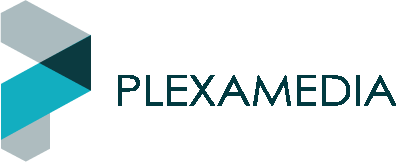Domain name scams and fraud are unfortunate realities in the online world. With the increasing importance of domain names for businesses and individuals, scammers and fraudsters have devised various tactics to exploit unsuspecting victims. It is crucial for domain name owners and prospective buyers to be aware of these scams and take proactive measures to prevent falling victim to fraudulent activities. In this article, we will discuss common domain name scams, red flags to watch out for, and essential tips for fraud prevention.
COMMON DOMAIN NAME SCAMS
Domain Name Hijacking: In this scam, fraudsters attempt to gain control of a domain name that is already registered by its rightful owner. They employ techniques like phishing, social engineering, or hacking into the owner’s domain registrar account to modify the domain’s settings or initiate a transfer without the owner’s consent.
 Domain Name Appraisal Scams: Scammers contact domain name owners claiming to be interested buyers and request a professional appraisal of the domain’s value. They often refer the owner to a specific appraisal service that they themselves control or have a vested interest in. The appraisal results are manipulated to undervalue the domain, leading the owner to sell it for a lower price.
Domain Name Appraisal Scams: Scammers contact domain name owners claiming to be interested buyers and request a professional appraisal of the domain’s value. They often refer the owner to a specific appraisal service that they themselves control or have a vested interest in. The appraisal results are manipulated to undervalue the domain, leading the owner to sell it for a lower price.
Fake Domain Renewal Notices: Fraudsters send deceptive emails or physical mail claiming to be the domain registrar or a legitimate renewal service. These notices often use urgent language, threats of domain loss, or misinformation to trick domain owners into renewing their domain with the scammer’s service, resulting in unnecessary payments and potential domain transfer.
Domain Name Registration Scams: Scammers contact individuals or businesses, claiming that a third party is attempting to register a domain similar to their brand or trademark. They offer to secure the domain on the victim’s behalf for a fee, creating a sense of urgency and fear to pressure victims into paying for unnecessary services.
RED FLAGS AND WARNING SIGNS
Unsolicited Communications: Be cautious of unsolicited emails, phone calls, or messages claiming to offer domain-related services or urgent domain renewal notices. Legitimate domain registrars and service providers do not typically engage in unsolicited communications.
Poor Grammar and Spelling: Scam emails or websites often contain noticeable grammar and spelling errors. Pay attention to these signs as they may indicate fraudulent activities.
Urgency and Threats: Scammers frequently use urgency and threats to pressure victims into making quick decisions. Genuine domain registrars and reputable service providers do not employ such tactics.
Unusual Payment Requests: Beware of payment requests through unconventional methods, such as wire transfers, virtual currencies, or prepaid cards. Legitimate domain services usually accept payments through secure and widely recognized methods.
PREVENTING DOMAIN NAME SCAMS AND FRAUD
Educate Yourself: Stay informed about the latest domain name scams and fraud techniques. Regularly review news articles, forums, and updates from reputable sources to stay up-to-date with the evolving scam landscape.
Verify Communication Sources: Always verify the legitimacy of emails, phone calls, or messages related to your domain name. Contact your domain registrar directly using the contact information provided on their official website to confirm the authenticity of any communication.
 Two-Factor Authentication (2FA): Enable 2FA for your domain registrar account to add an extra layer of security. This ensures that even if your password is compromised, an additional verification step is required to access your account.
Two-Factor Authentication (2FA): Enable 2FA for your domain registrar account to add an extra layer of security. This ensures that even if your password is compromised, an additional verification step is required to access your account.
Use Trusted Registrars: Register or transfer your domain name with reputable and well-established domain registrars. Research their reputation, read reviews, and choose a registrar with a track record of reliable services and strong security measures.
Secure Your Account: Implement strong and unique passwords for your domain registrar account, and regularly update them. Avoid using easily guessable or commonly used passwords. Additionally, consider enabling account notifications for any changes made to your domain settings, such as domain transfers or DNS modifications. This way, you’ll be immediately notified of any unauthorized activity.
WHOIS Privacy Protection: Consider opting for WHOIS privacy protection when registering your domain name. WHOIS is a publicly accessible database that contains information about domain owners. Privacy protection services replace your personal information with generic contact details, reducing the risk of identity theft or targeted scams.
Verify Appraisal Services: If you receive a request for domain appraisal, research the appraisal service and ensure its credibility. Look for reputable appraisal companies with a track record of fair and accurate evaluations. Be cautious of appraisal services recommended by unknown individuals or parties with vested interests.
Use Escrow Services: When buying or selling a domain in the aftermarket, consider using reputable escrow services. Escrow services act as intermediaries, holding the payment securely until the domain transfer is completed. This helps prevent fraudulent transactions and ensures a safer transfer process.
Conduct Due Diligence: Before engaging in any domain transaction, research the buyer or seller. Look for reviews, feedback, and references from other individuals who have dealt with them in the past. Trust your instincts and be cautious if something seems suspicious or too good to be true.
Consult Legal Professionals: If you are involved in high-value domain transactions or if you suspect any fraudulent activity, seek legal advice. Lawyers specializing in intellectual property or domain law can provide guidance and help protect your rights and interests.
Stay Informed About Trademarks: Before registering or acquiring a domain, conduct thorough research to ensure that it doesn’t infringe on existing trademarks or intellectual property rights. Familiarize yourself with trademark laws and consult legal professionals when necessary to avoid legal complications.
Report Scams: If you encounter or become a victim of a domain name scam or fraud, report the incident to relevant authorities and organizations. This includes your local law enforcement agencies, the Internet Crime Complaint Center (IC3), and your domain registrar. By reporting scams, you can help prevent others from falling victim to similar fraudulent activities.
CONCLUSION
Domain name scams and fraud pose a significant threat to individuals and businesses in the online landscape. It is essential to be vigilant, educated, and proactive in preventing such fraudulent activities. By staying informed about common scams, being cautious of red flags, and implementing security measures like two-factor authentication, domain owners can reduce the risk of falling victim to scams. Remember to conduct due diligence, use trusted registrars and escrow services, and seek legal advice when needed. By taking these precautions, you can protect your domain assets and ensure a safe and secure online presence.






